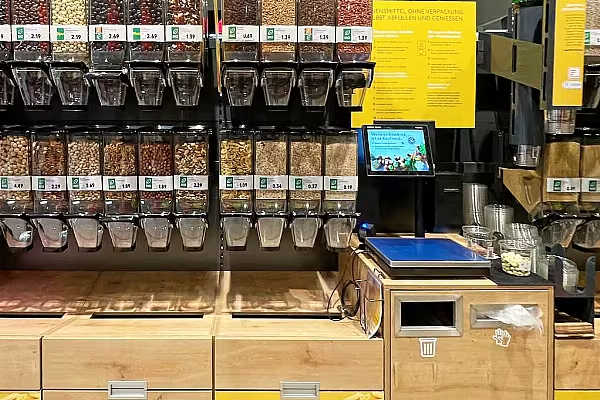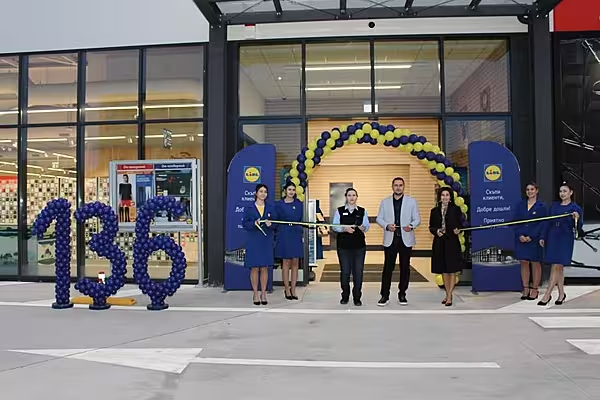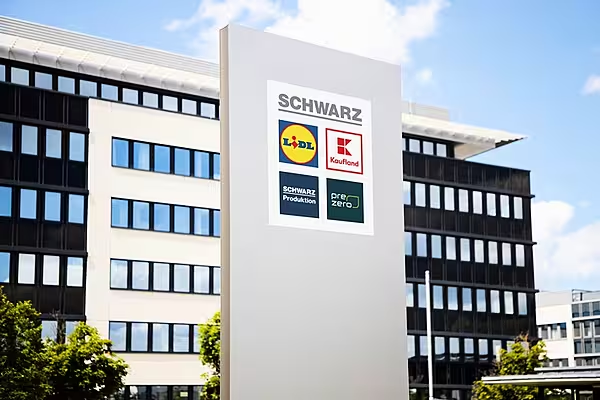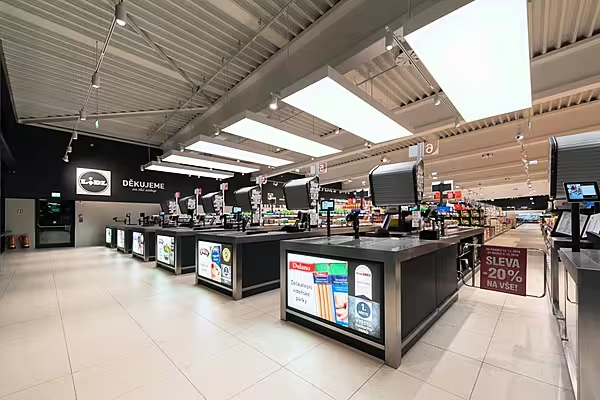German retailer Kaufland, a part of the Schwarz Group, has added recyclable cups to its refill stations, to encourage customers to use the stations.
The cups can be returned to the retailer's outlets for recycling.
The addition is part of the group's REset Plastic strategy, which focuses on creating a circular economy in the company's operations.
Returnable Cups
The 600-millilitre cups are made from 50% recycled PET and have a deposit value of €0.25.
Customers also have the option to bring their own containers to fill the food from these stations.
“The disposable cups are an alternative to own containers and are ideal when customers spontaneously decide to buy unpackaged goods. By returning it to the material cycle, we conserve resources,” says Thomas Schäfer, head of sales at Kaufland.
The retailer offers unpackaged goods as a means of reducing both plastic and food waste in private households.
The unpacked range at Kaufland includes around 40 staple foods such as rice, pasta, bulgur, and quinoa, but also chocolate-coated nuts, dried fruit, and muesli.
The food supplier is Eco Terra, which claims to be committed to preserving biodiversity, respecting traditional knowledge, and ensuring that everyone involved in the supply chain receives a fair share.
The refill stations are available at the following stores:
- Berlin-Niederschoeneweide, Schnellerstrasse 21
- Hamburg-Bramfeld, Bramfeld Dorfplatz 18
- Heidelberg-Pfaffengrund, Eppelheimer Strasse 78
- Cologne-Ehrenfeld, Thebäerstrasse 9
- Leipzig, Paunsdorfer Allee 1
- Munich-Moosach, Bunzlauer Platz 5-7
- Pfungstadt, Eberstadter Strasse 200
- Steinheim ad Murr, Steinbeisstrasse 15
Plastic Reduction At Kaufland
For several years, Kaufland has relied on numerous solutions that reduce the use of plastic and thus conserve resources.
This includes reduced-plastic packaging, the delisting of single-use carrier bags, the use of recyclate for PET bottles, and the introduction of fresh produce bags for fruit and vegetables and reusable lids for dairy products. [Photo Courtesy: @Kaufland]
© 2022 European Supermarket Magazine – your source for the latest Retail news. Article by Conor Farrelly. Click subscribe to sign up to ESM: European Supermarket Magazine.











